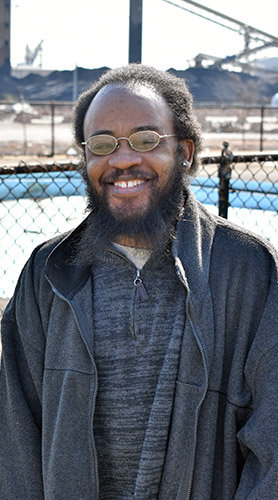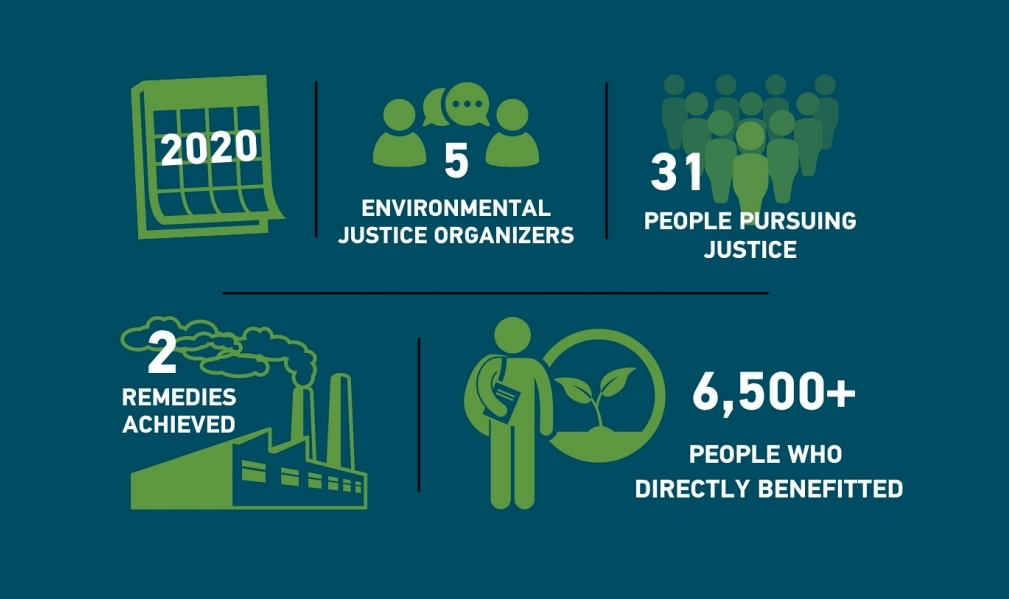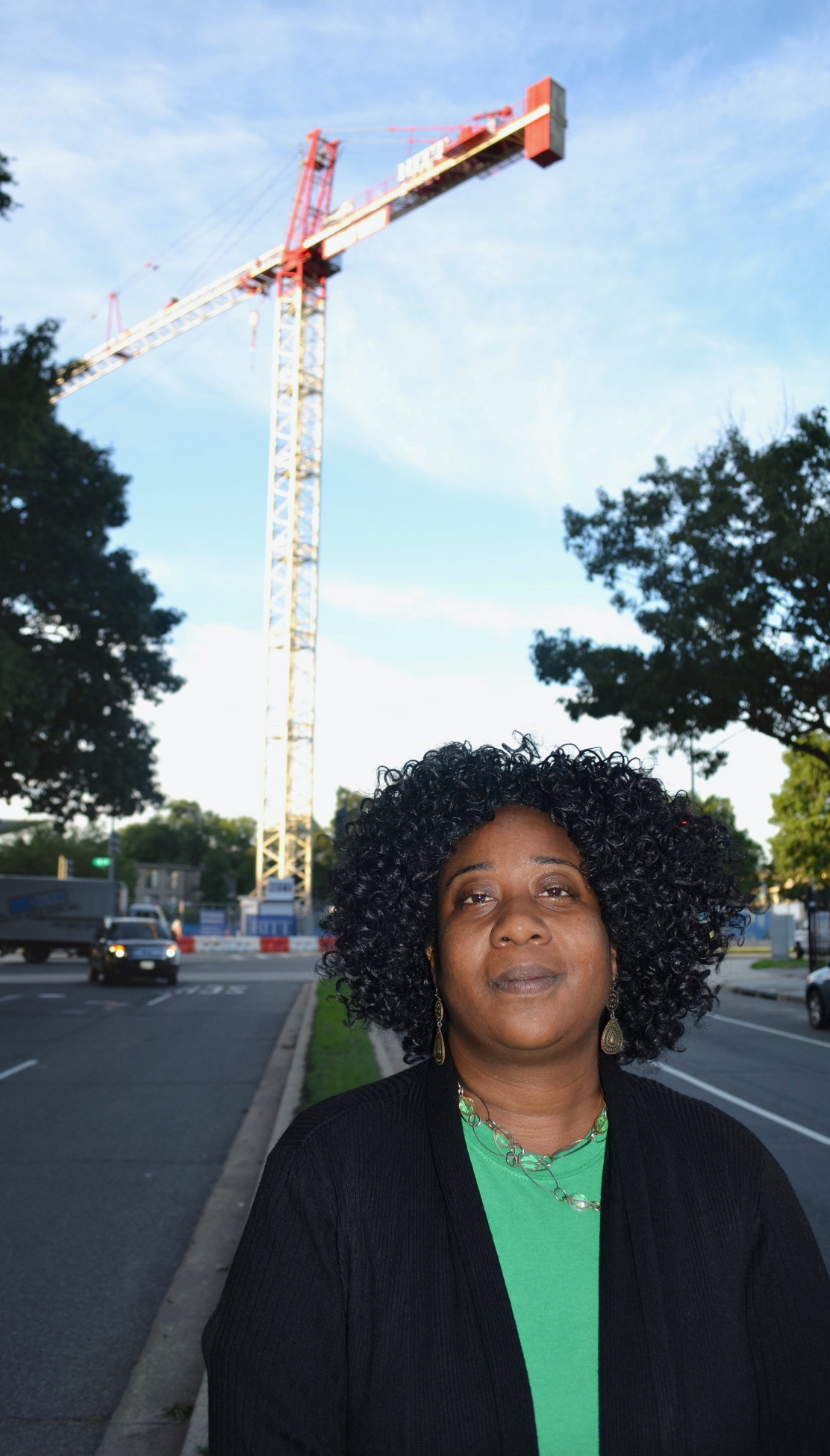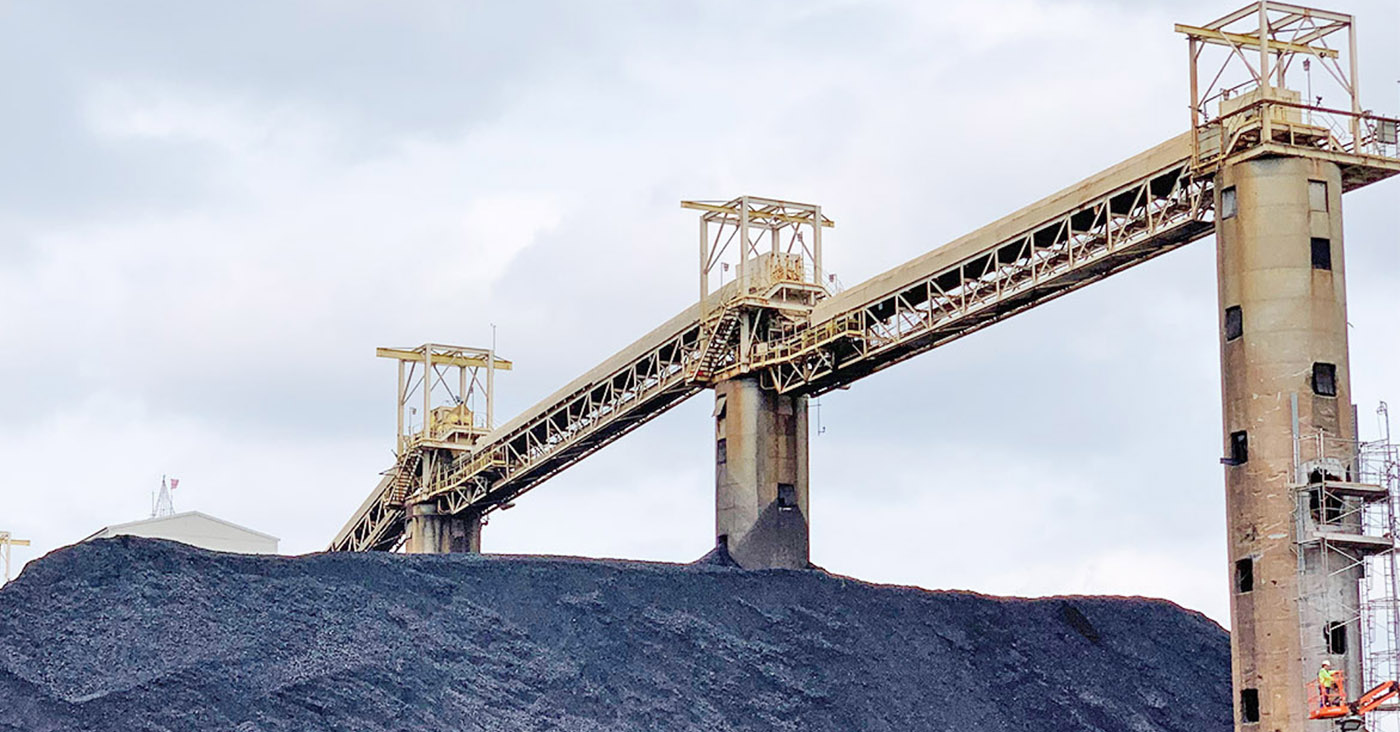
Terrel Askew, one of the environmental justice organizers who has partnered with Namati in the US
Our Journey in 2019 & 2020
In 2019, Namati launched a program to advance environmental justice in the United States.
Across America, poor people and people of color are disproportionately targeted to host industrial projects—exposing these communities to pollutants and toxins, which in many cases lead to high rates of asthma, cancer and other diseases. While there are good environmental laws on the books, enforcement is extremely weak.
The communities who bear the brunt of these problems should have a leadership role in addressing the climate and environmental crisis we face. But to date these communities have not had much of a say in what the solutions should look like. The mainstream environmental movement in the U.S. has often been led by experts, dominated by white people, and focused on highly technical channels like litigation.
Our Grassroots Impact at a Glance
In 2020, environmental justice organizers worked with their communities to address environmental violations by private and public projects. Together, they achieved remedies that directly improved the health, wellbeing, and livelihoods of thousands of people.


Environmental justice organizer Rhonda Hamilton
Rhonda Hamilton: Fighting so that Children in her Community can “Live to be Grandparents”
As a child, Saturdays meant two things for Rhonda: trash and pizza. Her mother ardently believed in being ‘a good member of her community’ and was committed to teaching her children the same. “She’d wake us up Saturday mornings and say, ‘Come on! Let’s go pick up the trash! We’d say, ‘Booo!’ And then she’d say, ‘Well, I’m going to take you out for pizza after.’ And we’d say, ‘Yay!’” recalls Rhonda with a laugh.
Now in her 40s, Rhonda still lives in the same Washington, DC neighborhood she did as a child. Located where the Potomac and Anacostia rivers meet, the low income and predominantly Black neighborhood of Buzzard Point has long been known as the district’s industrial area. Rhonda can remember concrete factories and a plant for recycling construction waste operating amidst their schools, churches, and family homes. But she had no idea then of their consequences.

“In nearly every state in America today, if you are not a licensed lawyer, you can educate a neighbor about law and rights in the abstract, but the moment you advise your neighbor about how they might use those laws to solve a problem they face, you are committing a crime called ‘unauthorized practice of law.'”
In an impassioned and persuasive essay for Democracy Journal, Namati’s CEO, Vivek Maru, argues that in order to deepen democracy in America, the U.S. needs to embrace legal empowerment rather than criminalizing it.
Our Implementing Partners
Near Buzzard Point
Resilient Action Committee
Clean Water Action
Patuxent Riverkeeper
Port Towns
Environmental Action

